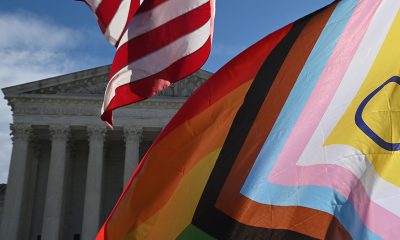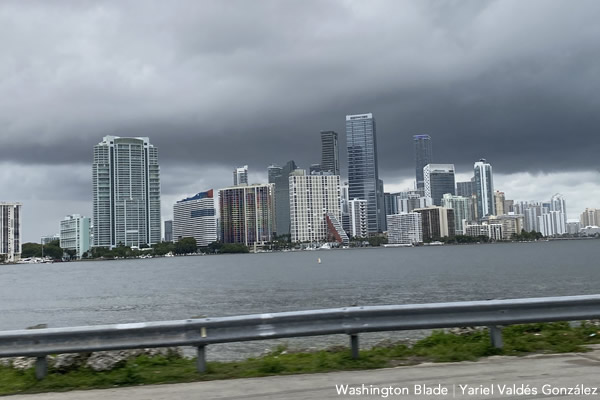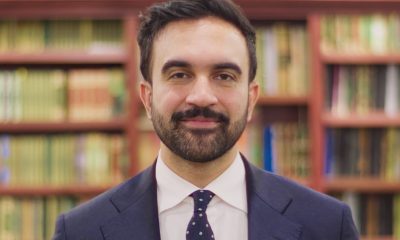Opinions
From state houses to Chechnya, anti-LGBT attacks surging
We must fight for the marginalized among us
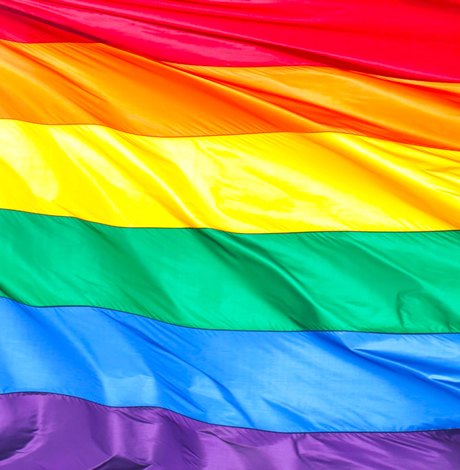
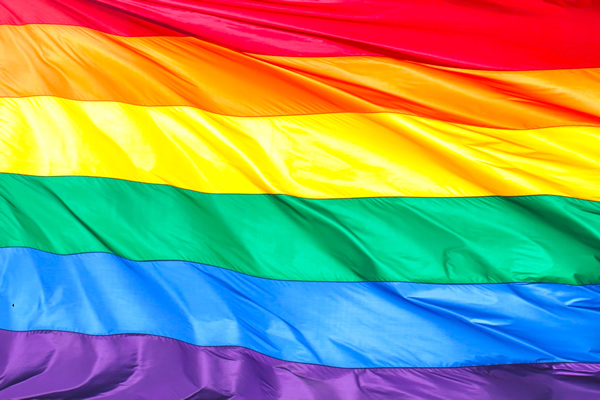 In 2011, a few friends and I saw the need for an online gay community that could connect people. We wanted to create a safe space that could connect future dates with each other, connect future husbands to one another, and connect people for friendships that would last a lifetime. We chose the name Hornet for our fledgling community because it symbolized the most social and communal of species. It was also a species that would aggressively protect the safety of its nest. In many ways it spoke to how we felt as people. We wanted to build a community that we would also work hard to protect. That was in 2011 and yet now, more than ever, we must continue to build safe communities for ourselves and protect them for generations to come.
In 2011, a few friends and I saw the need for an online gay community that could connect people. We wanted to create a safe space that could connect future dates with each other, connect future husbands to one another, and connect people for friendships that would last a lifetime. We chose the name Hornet for our fledgling community because it symbolized the most social and communal of species. It was also a species that would aggressively protect the safety of its nest. In many ways it spoke to how we felt as people. We wanted to build a community that we would also work hard to protect. That was in 2011 and yet now, more than ever, we must continue to build safe communities for ourselves and protect them for generations to come.
In 2011, our LGBTQ+ community was making incredible strides on the long march toward civil rights and social acceptance. We were setting an example for what it meant to build inclusive communities for ourselves and our allies. As Americans, we were leading by example as a beacon for acceptance by tearing down the walls that isolated us and building bridges in this country and around the world.
We didn’t know it at the time, but our LGBTQ+ community would soon be included for the first time in a presidential inaugural address as President Obama eloquently stated, “We, the people, declare today that the most evident of truths, that all of us are created equal, is the star that guides us still, just as it guided our forbearers to Seneca Falls and Selma and Stonewall, just as it guided all those men and women, sung and unsung, who left footprints along this great Mall to hear a preacher say that we cannot walk alone, to hear a king proclaim that our individual freedom is inextricably bound to the freedom of every soul on Earth.” It was a singular moment that highlighted the best of American values and our commitment to protect LGBTQ+ communities across the world.
Fast forward to 2017. Our American LGBTQ+ community has achieved marriage equality. Our American LGBTQ+ community is being included for the first time under the 1964 Civil Rights Act for workplace protections. Our community can serve openly and proudly in the military. Our families are growing with every state now allowing gays and lesbians to adopt children into loving homes.
But standing in stark contrast to these gains that come from a long-held tradition of American values, we see the rise in hate crimes against our communities. We are seeing a rise in discriminatory laws in states against LGBTQ+ people. We see transgender women of color being murdered every month. We see the rise in calls to eliminate federal funding for critical HIV and AIDS research. We see the rise in in our LGBTQ+ youth reaching out to suicide prevention lines. And as the United States sees continued attacks against our nest, our communities, and our homes, we are seeing what that means across the globe as well. Implicitly or explicitly removing the best of American values from a global stage allows for the propagation of crimes against humanity. It is being widely reported that gay men are being rounded up in Chechnya and being tortured, held in concentration like camps and ultimately being murdered. These heinous crimes are being denied by that government because, as a body, they deny our very existence. “You cannot arrest or repress people who just don’t exist in the republic,” said Alvi Karimov, a spokesman for Chechen leader Ramzan Kadyrov when speaking to the Interfax news agency.
As an American, I brought the struggles and victories of the American heroes who fought at Seneca Falls, Selma and Stonewall to our vision for the Hornet community. And now, six years later with over 20 million members of our global community, it’s clear that attacks on LGBTQ+ people both here and abroad are on the rise. With new atrocities being reported in countries like Chechyna and hate crimes on the rise here at home, it is time that we rise again to safeguard our communities.
As President Obama so thoughtfully spoke about our individual freedom being inextricably bound to the freedom of every soul on Earth, we call on all LGBTQ+ Americans to fight for the growing number of our marginalized brothers and sisters who are under attack. This is the time to bring the best of American values, hopes and dreams back to the forefront of our national dialogue. With technology, with community and with each other, we will continue to build on the advancements that were happening in 2011 when we launched our online home. Like the hornet, we will protect our nests and we will carry on the American dream.
Sean Howell is an LGBT rights advocate and president of Hornet.
Opinions
Suicide and the policy crisis facing trans Americans
Not an inevitable statistic but a preventable public health emergency

Collegiate swimmer and transgender woman Lia Smith from Middlebury College recently took her own life. Her death has shaken campuses across the country, but it should also shake the conscience of policymakers. We have become too accustomed to treating trans suicide as a tragic but inevitable statistic, instead of the preventable public health crisis it is. The death of one young athlete isn’t an isolated heartbreak — it’s a reflection of national failure.
Transgender people are several times more likely to attempt suicide than the general population. Data from the CDC show that about one in four transgender and questioning high school students has attempted suicide in the past year, compared to fewer than one in 20 cisgender males. That gap is staggering. It’s also reversible. Decades of research and experience show that suicide risk among trans people drops dramatically when they are supported — when their identities are respected, when their healthcare is affirmed, and when they are treated as equal participants in civic life.
So why are we still losing so many?
The answer lies in policy. The mental health of trans Americans is not shaped only in therapy rooms or hospital wards — it is shaped in state legislatures, on college campuses, and in the daily signals society sends about whether we are welcome to exist. Every time a law is passed banning gender-affirming care, restricting participation in sports, or erasing identity from school curricula, it tells trans youth that their lives are negotiable. When adults debate their existence on television, that rhetoric trickles down into classrooms, dorm rooms, and locker rooms, where young people already fighting for belonging are told, in ways subtle and overt, that they do not belong.
The environment on many campuses mirrors the national tension. A college like Middlebury is supposed to be a sanctuary for learning and growth, but trans students often find themselves fighting invisible battles — for pronouns to be respected, for dorms that feel safe, for medical care that affirms who they are. Coaches and administrators rarely receive proper training on how to support gender-diverse athletes, and campus mental health centers are often ill-equipped to handle the specific trauma of identity-based rejection. When that institutional support fails, even the strongest students — those with scholarships, discipline, and community roles — can feel isolated beyond repair.
Policy, at its best, can save lives. Research published in the Journal of Adolescent Health found that access to gender-affirming care significantly reduces suicidal ideation and attempts. The inverse is also true: states with laws restricting such care see measurable spikes in suicide attempts among trans youth. The Trevor Project reports that anti-trans legislation can increase the risk of suicide by as much as 70 percent. These are not abstract percentages; they represent real young people — swimmers, musicians, writers, and scholars — who might have lived had the political climate been less hostile.
Colleges and universities have a duty to fill the gaps that national policy leaves behind. They can start by requiring trans-inclusive mental-health training for faculty, coaches, and residential staff. They can ensure that campus health centers understand the psychological toll of living under attack. And they can collect accurate data on mental health outcomes for trans students so that prevention efforts are based on evidence, not guesswork. These are not radical demands; they are the bare minimum for any institution that claims to care about student wellbeing.
But responsibility does not end at the campus gate. The federal government must recognize suicide among trans Americans as a national emergency — one that requires the same attention we give to veterans, farmers, or law enforcement officers at risk. Funding for research, mental-health infrastructure, and crisis prevention must include the trans community explicitly, not as an afterthought. The message must be clear: protecting trans lives is not a culture-war issue; it is a moral one.
For those of us who have lived through our own storms — the loneliness, the addiction, the feeling of being untethered from a world that doesn’t understand us — these stories hit close to home. I know what it means to feel unseen. I know how fragile the human mind can become when the world tells you that your identity is controversial. And I also know that with community, understanding, and proper care, people can come back from that edge. I have.
When the waters go still, when the headlines fade, we owe it to the swimmer from Middlebury — and to every trans person who has struggled to stay afloat — to act. Policy cannot undo her death, but it can prevent the next one. It can remind trans youth that they are valued, needed, and seen.
The question is whether our leaders have the courage to look past the politics and see the people. Because behind every statistic is a name, a face, and a life that could have been saved.
Isaac Amend is a writer based in the D.C. area. He is a transgender man and was featured in National Geographic’s “Gender Revolution” documentary. He serves on the board of the LGBT Democrats of Virginia. You can follow him on Substack at @isaacamend where he writes about philosophy, love, literature, and 50 cent.
Commentary
Nancy Pelosi: an LGBTQ appreciation of the retiring House speaker emerita
Long-time San Francisco congresswoman announced retirement on Thursday
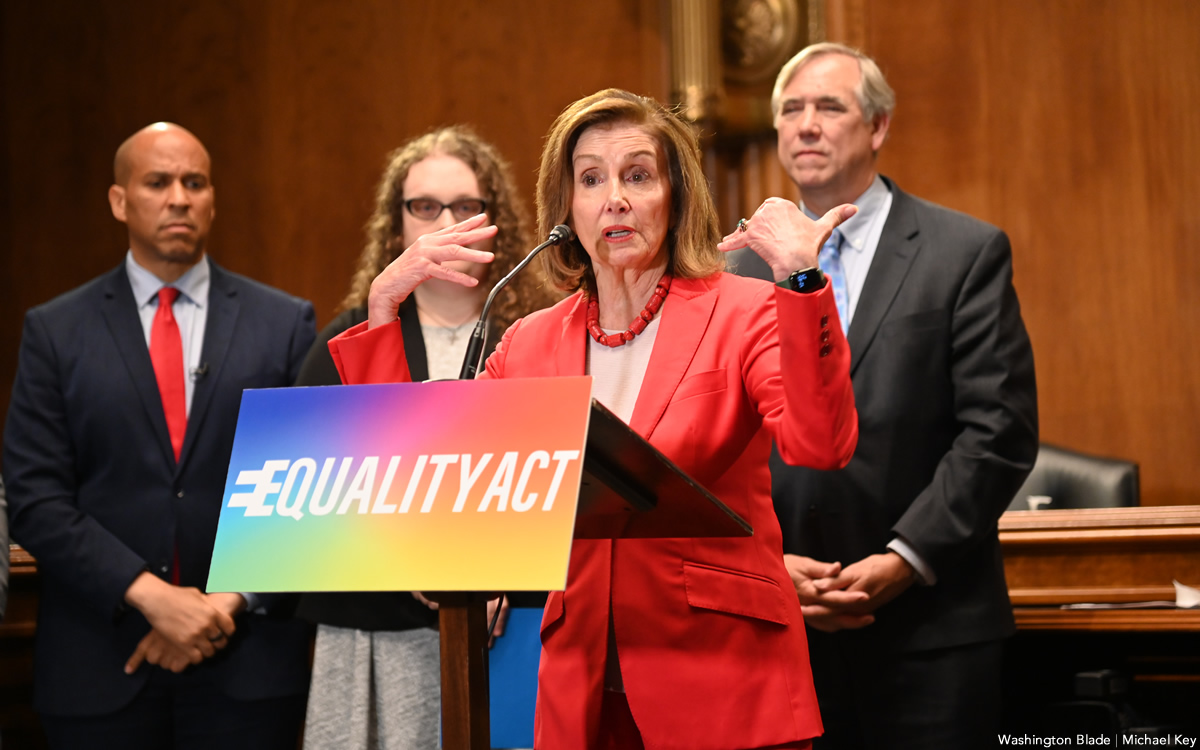
It was not unexpected. House Speaker Emerita Nancy Pelosi, 85, is retiring after serving 39 years in Congress. Her announcement video, released Thursday, is an ode to her beloved San Francisco, brimming with images of people, landmarks, and the proud liberal story that quickened her heart and stiffened her spine as she fought for progress in making America a more perfect union.
“My message to the city I love is this: San Francisco, know your power,” Pelosi said. “We have always led the way, and now we must continue to do so by remaining full participants in our democracy and fighting for the American ideals we hold dear.”
Pelosi’s legacy as the country’s powerful first and, so far, only female House speaker — serving twice in that role, 2007-2011 and 2019-2023 — is replete with examples of how she smartly and bravely stood up to bullies, including Republican President Donald Trump and his violence-prone cult followers who demonize her, and sought her out during the Jan. 6, 2021 insurrection at the Capitol as she led the certification of Joe Biden as president. Roughly three years later, her husband Paul was seriously attacked in their San Francisco home by an intruder intent on kidnapping her.
As House speaker, Pelosi presided over Trump’s two impeachment votes in his first term. And while she might not reach those heights again while she serves until January 2027, she was a visible force in passing California’s Proposition 50, working behind the scenes, helping Gov. Gavin Newsom raise money and construct the state’s reapportionment initiative in response to Trump’s attempts to rig the 2026 midterms.
Prop 50 — the only thing on the ballot in this special election — won handily with almost 64 percent of the vote to 36 percent percent. Los Angeles County voted “Yes” 73 percent to 27 percent.
“Some people go off and they talk about the way the world should be, but they don’t do anything to damn manifest it,” Newsom said on election night, per the New York Times. “Nancy Pelosi doesn’t go out to try to make points. She makes a difference.”
Two of her most memorable achievements as Speaker were her deft political strategy, vote counting and arm-twisting to pass extremely difficult legislation such as the new Obama administration’s American Recovery and Reinvestment Act after President George W. Bush’s “too big to fail” Great Recession and the Affordable Care Act (Obamacare) — after which she proclaimed that “being a woman is no longer a pre-existing condition.”
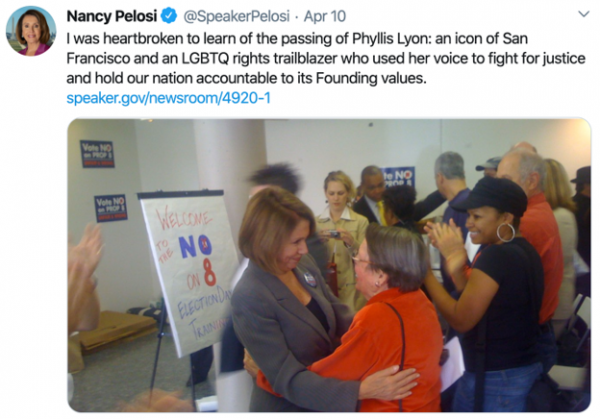
During her decades in Congress and before, Pelosi has been a towering hero. “She’s just always been there,” longtime AIDS and gay activist Cleve Jones, who at first didn’t take her seriously, told the New York Times. “She’s more than an ally. She’s family.”
In May 2018, I interviewed Nancy Pelosi, then the House Minority Leader, in advance of the important midterm elections — the success of which resulted in her historic election as Speaker for a second time.
With Trump and Project 2025 erasing our rights and our history with their version of Christianity and with the new AIDS Monument opening on Nov. 16 in West Hollywood, I think Nancy Pelosi illustrates how one can be religious, progressive, and decent, such as her expression of gratitude to President George W. Bush for his PEPFAR AIDS program.
Nancy Pelosi: The famous Leader you may not know (Excerpts)
House Minority Leader Nancy Pelosi is the embodiment of the feminist adage “the personal is political.” She celebrated part of her 78th birthday at an LGBTQ equality weekend in Palm Springs, which she declared a “fabulous” fundraiser for the Democratic effort to “take away” the House from the Republicans in the November midterm elections.
Pelosi is so confident of victory, she told the Los Angeles Blade that out Rep. Mark Takano (D-Calif.) will be the next chair of the House Veterans Affairs Committee come January 2019.
“‘We will win. I will run for speaker. I feel confident about it. And my members do, too,” the Boston Globe reported May 1 on Pelosi’s meeting with the Globe’s editorial staff. “It’s important that it not be five white guys at the table, no offense,” referring to Trump’s meeting with the top two leaders from the House and Senate. “I have no intention of walking away from that table.”…
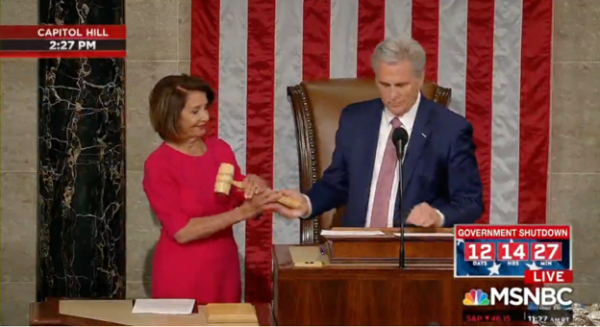
Many of the darts thrown at Pelosi over the years have been acid-tipped with LGBTQ-hatred. “One of the things the Republicans like to do around the country is to represent me as a LGBTQ-first-and-foremost supporter. I represent San Francisco, which they caricaturize as being a gay haven and capitol. And that’s something we’re very proud of,” Pelosi [said]. “But the fact is, the country is going to leave them behind because people have a different level of respect because of the work the LGBTQ community has done in many areas to end discrimination and in the fight against HIV/AIDS.”
Pelosi says HIV/AIDS and passage of the Equality Act are top priorities.
“The Equality Act is something that really should be appreciated in a very special way because it really is transformative,” Pelosi says. “It just changes everything. It says whether it’s credit or housing or job discrimination, or you name it — you can no longer discriminate. Well, you shouldn’t discriminate to begin with. But it makes it a part of the Civil Rights Act to protect [LGBTQ] people.”…
To be sure, enshrining discrimination into law seems to be a subtextual plan of the Trump-Pence administration, with more information leaking out about Pence’s behind-the-scenes machinations involving the ban on transgender service members serving openly in the military …
Pelosi’s focus is on winning the House. “We are going to be focusing on the economy in our debate,” she says … “What we have to do is focus on the economic insecurity of American families and people. It’s about their apprehensions and their aspirations. And that’s what we need to be talking about … ”
Pelosi also shares the concern of then-U.S. Rep. Adam Schiff, her appointee to the House Intelligence Committee, about the “dismantling of our democratic institutions that President Trump is so set upon, whether it is dismantling and discrediting the press, which I think is the greatest guardian of our freedom — freedom of press, dismantling of our Justice Department and law enforcement, in terms of the FBI, ignoring the system of checks and balances that exists in our Constitution, which is the strength of our country.”…
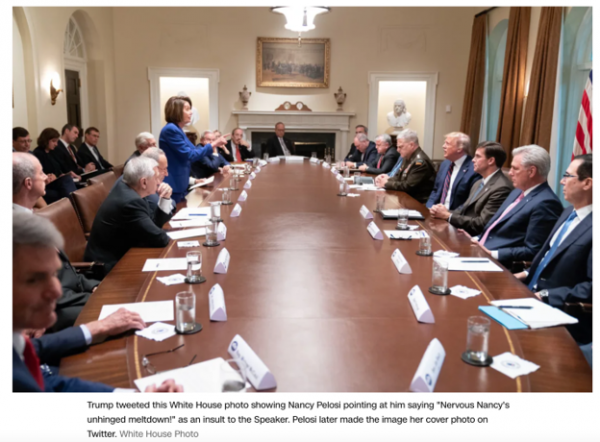
“The president is anti-governance. He doesn’t really believe in the role of government in improving people’s situations,” Pelosi says. “So it’s a comprehensive approach to dismantling democratic institutions … One of the reasons people should be very concerned is because the president is doing nothing to protect our electoral system, our democracy.”…

While young people at the #ResistMarch in West Hollywood last year were stirred up by Leader Pelosi’s rhetoric, it was clear they knew she was important — but not really who she was and why she was so passionate about LGBTQ equality.
Some of it is centered in Pelosi’s Catholicism, which is not the set of beliefs the Catholic Church espoused during Prop 8 and other political-religious battles.
“As a Catholic, I was raised to respect every person. We’re all God’s children. In my family, there was never any question about that,” she says. “In Baltimore, we did have a growing LGBT community — we didn’t call it that then, but it was part of our lives, and it was not any question that we would be any more respectful of one person than another. It wasn’t even an issue with me, and I didn’t ever even describe it or associate it with Catholicism because Catholicism taught me something different. It didn’t teach me discrimination. It taught me respect. And so it prepared me very well, my Catholicism, for being a representative in San Francisco.”
During the 1980s, with the unchecked rise of AIDS, the Vatican came under intense criticism for sticking to its absolute prohibition against using condoms, coupled with Pope John Paul II calling homosexuality “intrinsically evil.”
Pelosi seems momentarily speechless. “I think the church’s position that people could not use condoms — it’s so hypocritical, I can’t even go to that place,” she says. “The church may make a proclamation, but they make a proclamation that people should not be using any contraception or birth control at all — it’s all about having a child. So while people are faithful to their religion, they are certain practicing what they need for the size and timing of their family, according to meeting their responsibility to the free will that God has given all of us.”
Ironically, because San Francisco “took a very big bite of that wormy apple called AIDS,” the church “was more sympathetic to people when they had HIV/AIDS because they needed help then they were to people who weren’t infected. It was the strangest, strangest thing,” Pelosi says.
“It’s a funny thing. The Catholics — and I’m surrounded by Catholics — but the Catholics that I grew up with and I lived with in California were always respectful of the church, of the pope, of our faith, and never thought it was in any way a barrier to us doing what we believed. And sometimes that was diametrically opposed to what their public statements were.”
Not that she thinks the church is immune to criticism. “There’s no question the Catholic Church in California was a participant in Prop 8 in a negative way,” Pelosi says. “We were on the other side of that. But to me, it was their problem. It wasn’t anything that was any moral imperative to me for me to follow the church in enshrining discrimination in the law in California.”
Pelosi also does not concur with churches that pontificate about the “non-negotiable” — being gay, marriage equality, euthanasia, birth control, all generally lumped together. The commonality is the certainty that “all interactions between people are about producing a child. Then you cannot have birth control, family planning, or any of that, and you cannot have homosexual relations,” she says.
“I view that as kind of their problem. It’s not the reality of life, and it’s not about respecting the dignity and worth of every person.”
But, Pelosi adds, “I’m not making any judgments about how each of us honors our free will and our sense of responsibility that goes with it.”
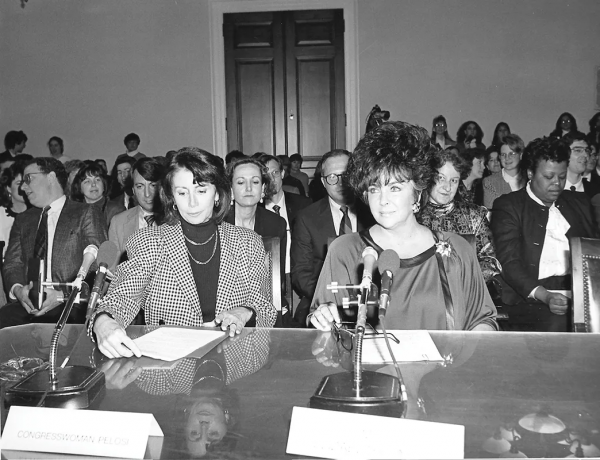
Pelosi is also guided by a moral imperative that young people may not understand today — the deep, personal impact of AIDS.
“Some people criticized me for talking about AIDS on my first day in Congress and I realized that it was not just about getting funding for AIDS research and prevention and care but it was about ending discrimination against people with HIV and AIDS,” adding that California has been a “tremendous resource” throughout the years for intellectual, political and economic response to the disease.
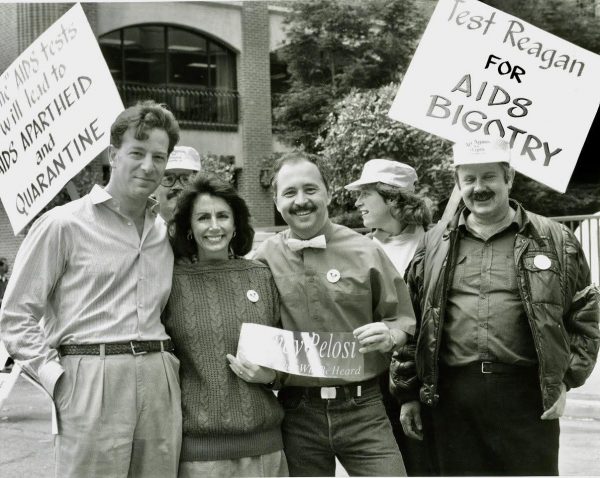
Pelosi responds viscerally when asked about losing friends.
“Oh, my gosh. Oh, my gosh. A little flower girl in my wedding. My dear, dear friends in the community in San Francisco. We were going to two funerals a day. I was visiting people in the hospital all the time, and quite frankly, when I say losing people,” Pelosi says, “I lost friends because I just walked away from them because they were not treating people with HIV and AIDS with respect. They would say to me, ‘I don’t know why you hire that caterer — don’t you know that everybody there has HIV?’ And I’d say, ‘Don’t bother to come to my house anymore if that’s your attitude.’ It just changed my whole view of them.”
Within the span of her life and political career, Pelosi has personally experienced the heartbreak of HIV/AIDS and the political battles to fund and find a cure.
“I’ll never stop missing some of my dearest dear friends from then,” she says. “Of course, we went from funerals to people saying help me make out my will because this is going to end soon, to those very same people looking for a job and then wanting to get married. So everything has improved but I would never have thought 30 years ago when I started all this in Congress that we still wouldn’t have a cure for AIDS. We’ve improved the quality of life, we’ve sustained life. Everything is better but it’s not over, not finished.”
Karen Ocamb is a longtime LGBTQ+ journalist and former news editor for the Los Angeles Blade. This essay is cross-posted from her Substack LGBTQ+ Freedom Fighters.
Commentary
A nation voting between fear and hope
Pro-LGBTQ, progressive candidates won across the country
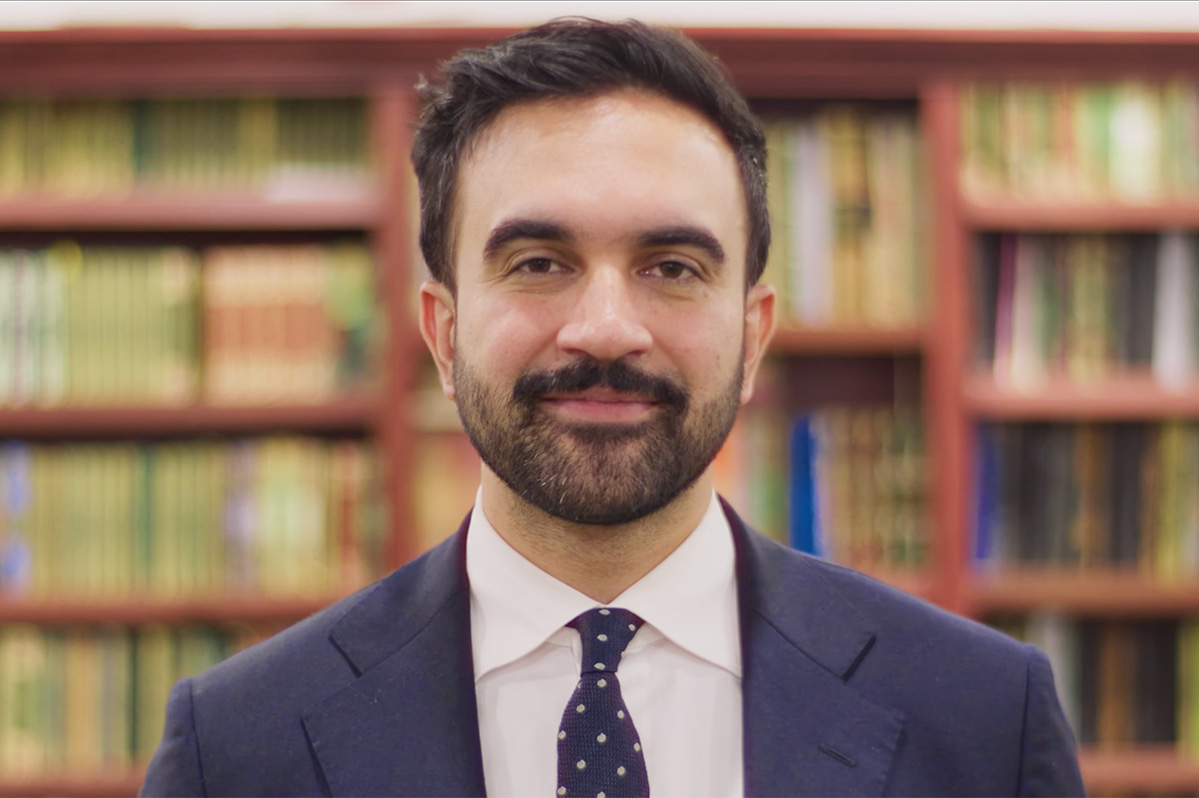
The United States returned to the polls on Nov. 4, and the results revealed much more than another electoral contest. What unfolded in Virginia, New Jersey, New York, Miami, and California was a moral and political X-ray of a nation voting between fear and hope. Voters spoke from uncertainty, but also from a conviction that the country can still be a place of justice, inclusion, and respect.
The victories of Abigail Spanberger in Virginia and Mikie Sherrill in New Jersey — together with the rise of progressive Zohran Mamdani as mayor of New York City, the Democratic surge in Miami, and the approval of Proposition 50 in California — set the tone for an election that sent a clear message to the Trump administration: fear may mobilize, but it cannot sustain power. Citizens voted with their hearts, tired of hate speech and political spectacle, and hopeful for a government that looks toward people rather than power.
New York became the clearest symbol of this shift.
Mamdani, the son of immigrants, Muslim, and unapologetically progressive, centered his victory speech on dignity and solidarity.
“Tonight we made history,” he declared before a diverse crowd. “New York will remain a city of immigrants: a city built by immigrants, powered by immigrants and, as of tonight, led by an immigrant.” But his most powerful message was directed at the city’s most vulnerable residents: “Here, we believe in standing up for those we love, whether you are an immigrant, a member of the trans community, one of the many Black women that Donald Trump has fired from a federal job, a single mom still waiting for the cost of groceries to go down, or anyone else with their back against the wall.”
Those words echoed across the country as a response to years of political regression and legislative attacks on LGBTQ people, and especially on the trans community. Mamdani pledged to expand and protect gender-affirming care, committing public funds to ensure that “every New Yorker has access to the medical treatment they need.” His stance positions New York as a beacon of resistance against the wave of restrictive policies spreading through many states.
The November results carry a profound meaning for those living on the margins of power. For the trans community, these outcomes represent far more than a political breather — they are an affirmation of existence. At a time when official rhetoric has sought to erase identities, deny healthcare, and criminalize bodies, the victory of leaders who champion inclusion rekindles the hope of living without fear. The trans vote, and the broader LGBTQ vote, was not merely civic participation — it was an act of survival and resistance.
The election also spoke to the hearts of immigrant families, people living with HIV or chronic illnesses, racial minorities, and working-class communities struggling to make ends meet. In a nation where so many feel politically invisible, these local victories renew faith in democracy as an instrument of transformation. They remind us that hope is not naïveté — it is the most courageous act of those who choose to keep standing.
Miami, for its part, sent an unexpected message. In a Republican stronghold historically aligned with the Trump administration, the Democratic candidate led the first round and forced a runoff election. In a city defined by its Latinx, Black, immigrant, and LGBTQ diversity, this progressive surge was a break with fear-driven politics and automatic voting patterns. The ballots in South Florida proved that change often begins where few expect it.
For the Trump administration, the message could not be clearer. The country is issuing a warning: human rights are not negotiable. The economy matters, but so does dignity. Voters are demanding real solutions, not slogans; respect, not manipulation; empathy, not imposition.
LGBTQ and trans communities have been the visible face of a resistance that refuses to surrender. Every vote cast was an act of hope in the face of fear; every victory, an answer to symbolic and institutional violence. The words of New York’s new mayor have become a national emblem because they transcend partisanship — they remind the nation that even in darkness, humanity can still be public policy.
The ballots of November spoke with the voices of those long marginalized or erased. They speak through trans people demanding respect, through couples defending their love, through young activists who refuse to be silenced, through believers who fight for an inclusive faith, and through families who still believe in a possible America. In the midst of fear, the nation chose hope. And that hope — imperfect, fragile, yet alive — may be the beginning of a new story: one in which equality is no longer a dream, but a promise fulfilled.
-

 District of Columbia3 days ago
District of Columbia3 days ago‘Sandwich guy’ not guilty in assault case
-

 Sports3 days ago
Sports3 days agoGay speedskater racing toward a more inclusive future in sports
-

 New Jersey4 days ago
New Jersey4 days agoBlue wave hits Northeast: Sherrill and Mamdani lead Democratic comeback
-

 District of Columbia4 days ago
District of Columbia4 days agoTrial begins for man charged with throwing sandwich at federal agent



